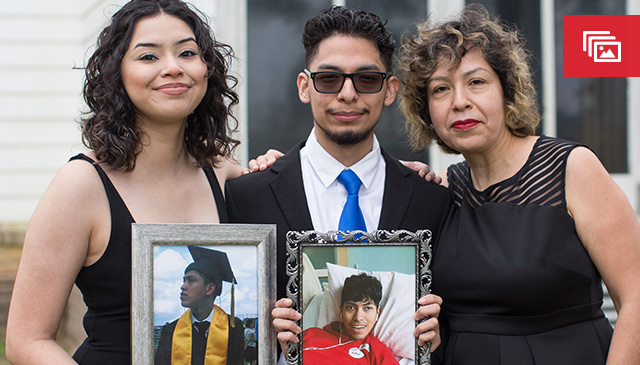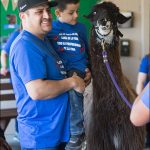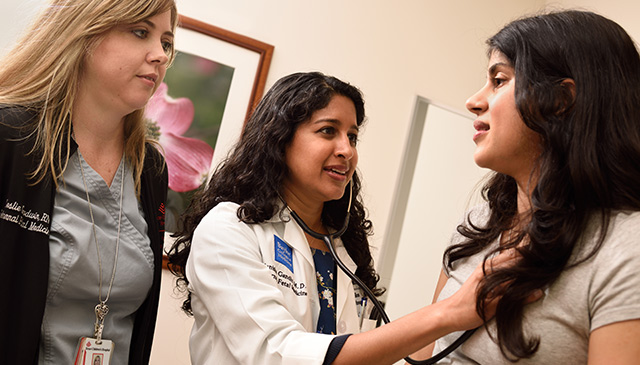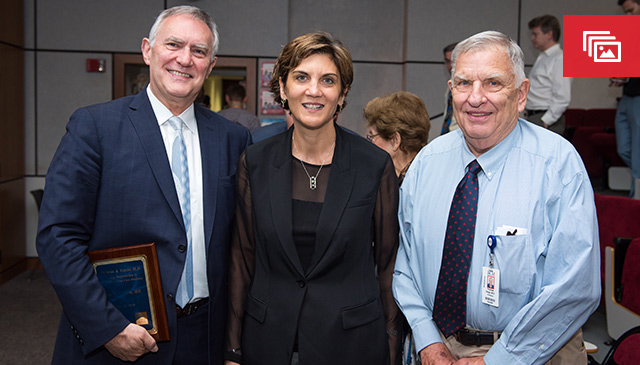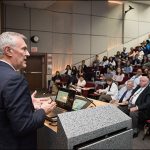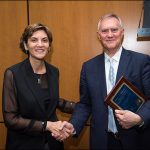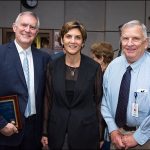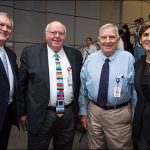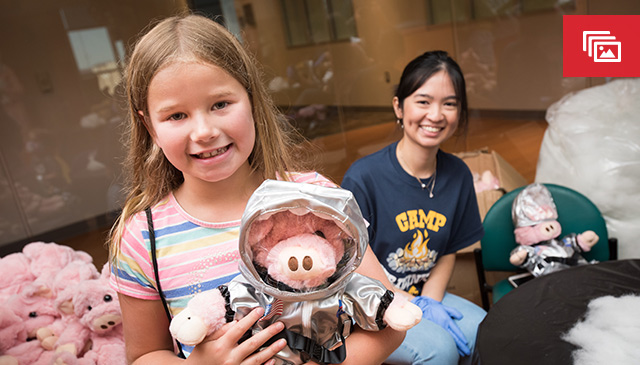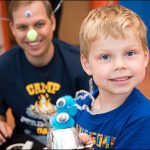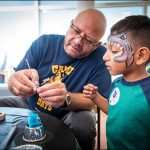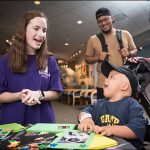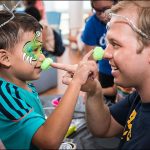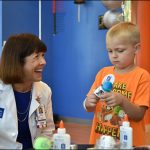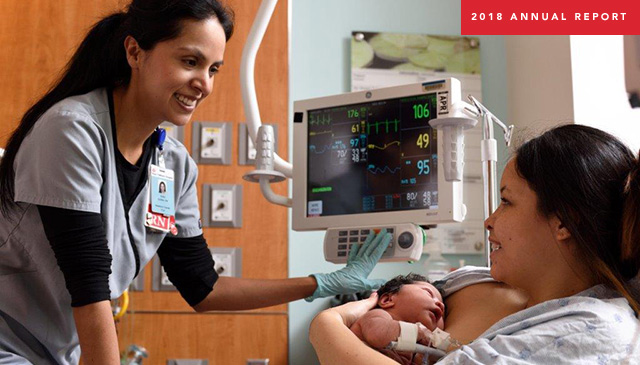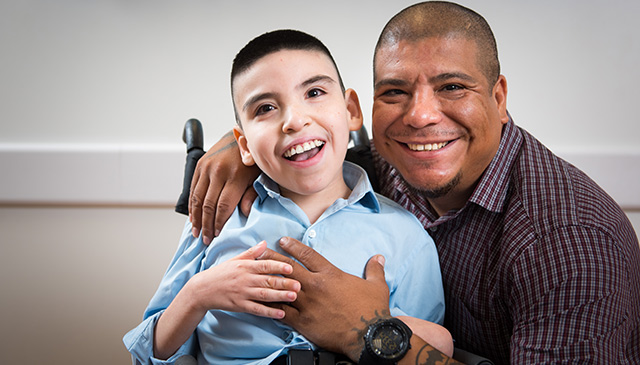
More Texas Children’s Pediatrics patients over the age of 18 will have the opportunity for a smooth shift to adult care as the Transition Medicine program expands to include seven locations: Corinthian Pointe, East, Gulfgate, Gulfton, Kingsland, Palm Center, and Ripley House.
Transition Medicine is the process of educating, organizing and eventually transferring patient care from the pediatric to the adult health care system. During this time the patient and their parent are informed of various ways to optimize the patient’s health moving forward. Texas Children’s is dedicated to helping patients transfer care smoothly without a decline or break in their treatment.
In 2016 Dr. Cynthia Peacock, medical director of Texas Children’s Hospital and Baylor College of Medicine’s Transition Medicine Clinic, was awarded the “Healthy Tomorrows Partnership for Children Program” 5-year grant from the Health Services Research Administration to increase transition readiness at Texas Children’s Pediatrics.
“I wrote the grant to help the Texas Children’s practices because lots of the referrals within the Texas Children’s family were struggling in the community to find someone to take care of them,” Peacock said. “This was especially prevalent amongst children and youth with special health care needs.”
The grant provides funding that also serves as an incentive to encourage clinics to become involved in the program and begin developing their own transition medicine process by educating their staff and providers.
“As we are providing care for an increasing number of complex care patients, our need to have a well-defined system for transitioning care to adult providers who are capable of continuing to provide the care these patients and their families need has never been greater,” Vice President and Chief Medical Officer of Texas Children’s Pediatrics and Texas Children’s Urgent Care, Dr. Stan Spinner said. “Our partnership with Dr. Peacock is providing us with the education and the tools necessary to help ensure a successful transition for our patients and their families.”
Upon receiving the grant, Dr. Rebecca Laster was selected as the physician leader to work with the clinics and help them identify specific tools that they could use to promote transition readiness and transfer. Her experience as a physician in the community clinics sparked her desire to want to assist these patients during this transition.
“I always think back to a time when one of my patients had a really hard time transitioning to adult medicine. That made me want to learn more about the process so I could better assist them,” Laster said. “Although, we have a lot of patients who’d like to stay with us forever, sometimes that’s not appropriate because we’re not trained in adult care. Therefore, I have the transition conversation with every single one of my patients so they know how important it is to eventually find an adult physician, and if they can start the process of thinking about it early on then everybody’s prepared.”
Many young adults between the ages of 18 to 21 transition their care to adult providers when they leave for college or enter the workforce. But for those with complex chronic pediatric diseases, transitioning is a struggle filled with barriers and challenges that include patient maturity, psychosocial and family needs, coordination and reimbursement issues, and identification of adult providers able to care for unique patient populations.
“Coordination of care is essential to avoiding gaps in care and adverse health outcomes for our patients. This is especially true with our vulnerable populations who have multiple chronic illnesses and complex health and social needs,” Nurse Care Coordinator of Texas Children’s Pediatrics, Pam Brock said. “We help provide support and guidance to our patient/families in navigating this process and by making sure all needs are met prior to transition. This helps to ensure a smooth transfer and avoids disruptions in their care. This program has increased overall fund of knowledge surrounding transition and continues to help improve the transition process for our patient/families.”
Jimmy Garcia is a 20-year-old patient at the Texas Children’s Pediatrics Ripley House location and has recently transitioned to adult care at The Transition Medicine Clinic at Baylor College of Medicine (BMC). Garcia has a global developmental delay, cerebral palsy, scoliosis, an intellectual delay, and is also non-verbal and non-mobile. He has been a patient at Texas Children’s since he was only a few months old, and is one of the many patients who benefit from the Transition Medicine program as they get older. His mother, Cynthia Garcia says that she didn’t know what to expect during the transitioning process, and is thankful for the assistance that their physician provided.
“I still wanted him to continue to see Dr. Wright,” Garcia said. “She was such a great pediatrician to him and our family, and Jimmy just feels so comfortable with her. However, everyone in the office was very positive during the process and prepared and helped us to be comfortable with accepting that Jimmy was eventually going to leave them.”
Texas Children’s academic partnership with BCM allows for an effortless transition for our patients. The goal of the BMC clinic is to prevent urgent health care crisis and to minimize the impact of a shrinking social support network that these patients and families have come to rely on in the pediatric health care system. According to Garcia, transitioning into adult care was just as easy as transferring out of the pediatric system. Their pediatrician, along with the Garcia’s social worker were very instrumental in assisting with paperwork and other aspects of the process.
“When it came time to schedule Jimmy’s first appointment, it was so smooth and easy,” Garcia said. “Our first visit to the transition clinic was also amazing. It was a joy seeing everyone so accepting of Jimmy. When we go to the doctor now, he knows the clinic, and he recognizes the environment. Jimmy is non-verbal so he doesn’t exactly express his words or anything, but the smiles, his reactions, those are things that let us know he’s comfortable and he’s aware of his surroundings. He’s doing really well!”
The program began with two clinics during the pilot year and grew through the third year. While currently in its fourth year of the grant, the goal is to identify additional clinics that are willing to participate. At the beginning of the process, clinics sign a memorandum of understanding, then identify the activities they would like to implement and goals they want to achieve to help with addressing transition.
Patients like Garcia represent the hard work that the transition medicine team has put forth, and the success of the program as a whole allows for more practices to be added and even more patients to be helped. Identifying patients who will need help transitioning in the future is key.
“Transition is not an event, it’s a process,” Peacock said. “You can’t drop someone off at the curb. It’s really about making sure that they engage.”
Engaging with the teenager and parent to make sure they have a plan, looking into insurance options, knowing what the next steps will be in advance helps to facilitate the transfer more efficiently. All seven participating practices have done this and more as they recently met their goals for the 2018 grant cycle and are looking forward to celebrating their continued success.
“Texas Children’s Pediatrics is excited to have many locations become a part of the Transition Medicine Program,” President of Texas Children’s Pediatrics, Kay Tittle said. “The goal is that this success continues on past the length of the grant, more practices are added, and we to continue to address transition effectively.”
These clinics are provided with an array of resources in the form of trainings, Epic tools, and supports for developing their own transition initiatives. If you work with TCP and are interested in learning more about Transition Medicine and how you can help support these efforts, please reach out to Pam Brock, RN pmbrock@texaschildrens.org, or Dr. Rebecca Laster, rblaster@texaschildrens.org.
